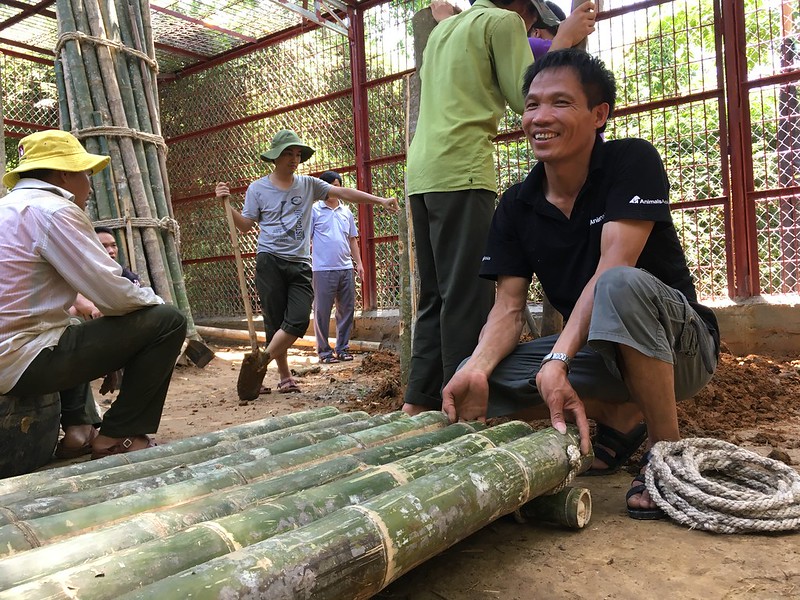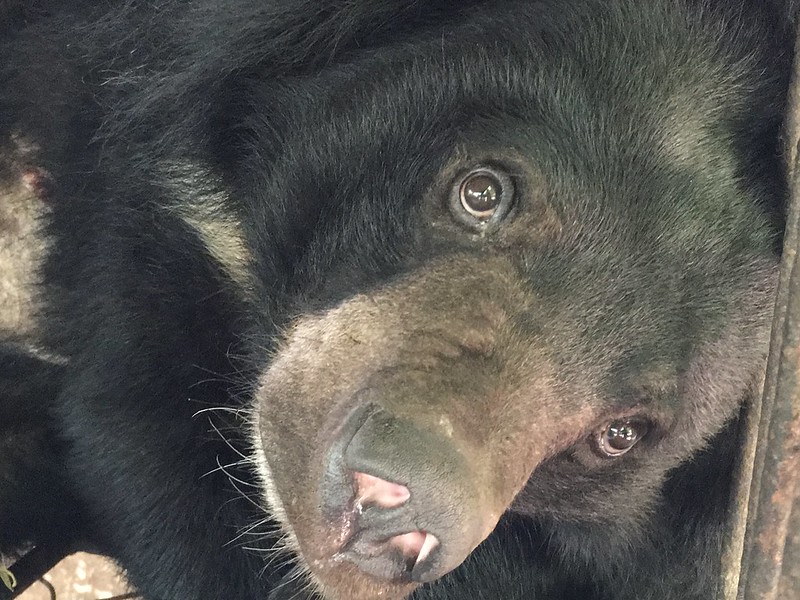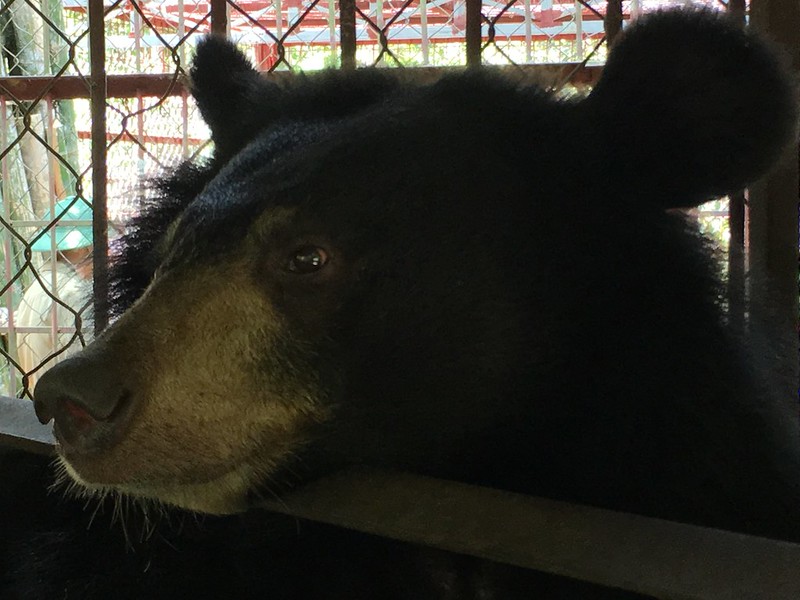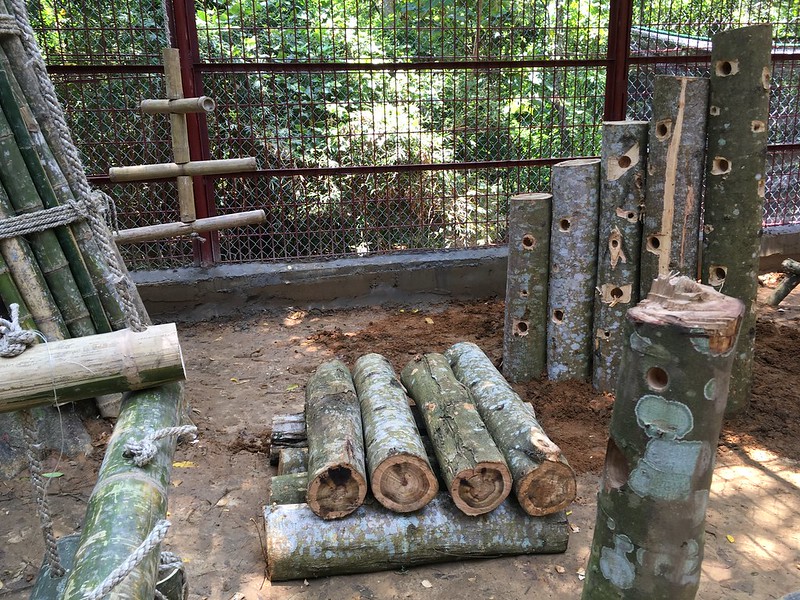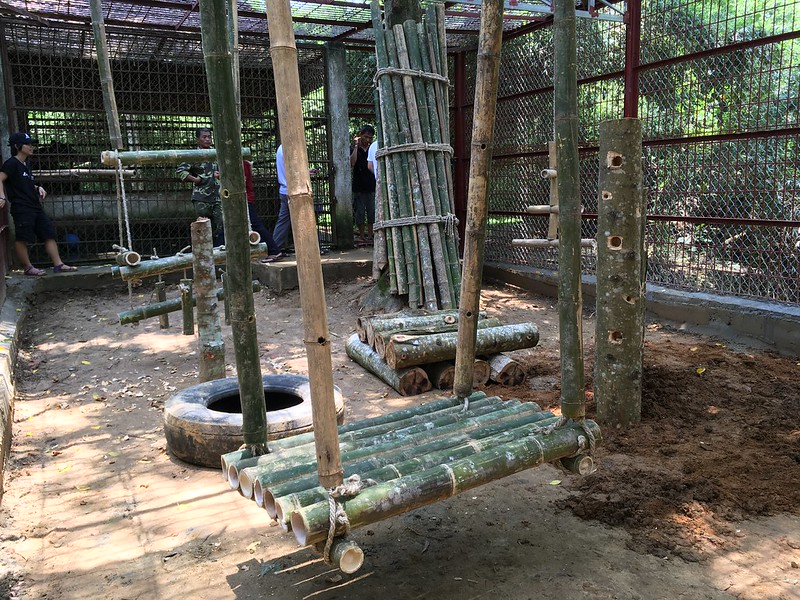When resources are limited – endless love is needed to help rescued bears
25 May 2017
When a cash-strapped government rescue centre in Vietnam asked for help, Animals Asia experts headed into the jungle.
Vietnam’s Pu Mat National Park is one of the most important ecological areas in the world. It is home to no less than five extremely rare endemic mammals such as the saola and white-cheeked gibbon which live alongside globally threatened species like the Indochinese tiger.
It was from here that Animals Asia received a plea for help from the park’s under-funded rescue centre.
The facility is home to two moon bears confiscated from traffickers in 2012. The centre had done its best to care for the animals following this trauma, but they simply didn’t have the expertise on bear management, enrichment and diet.
Plus with 1,000 bears yet to be rescued from bile farms in Vietnam – it’s vital that standards in all sanctuaries are improved with the possibility that they could yet take more bears as authorities work towards closing all bile farms in the country.
Having completed the long journey into the park’s thick jungle, an Animals Asia team began training park staff in the essential skills they need to improve the lives of the bears in their care. The team worked along side Pu Mat National Park staff for two days installing and building enrichment structures in a new outdoor enclosure.
With facilities and resources limited – there are still largely free resources that the carers could use every single day – fun, love, trust and care.
The team taught classes on building toys and feeders – known as enrichment. These will keep the bears mentally challenged and give them a chance to play in their enclosures.
Other lessons included building trust with the bears, introducing species-specific diets, learning how to measure body condition and administering medication.
What the staff learned will improve the lives of the bears immeasurably. They can’t be returned to the wild – there are simply no safe places left in the country – but the rescue centre is now better prepared to keep them healthier, calmer, and more stimulated.
Animals Asia’s Vietnam Bear and Vet Team Director Heidi Quine said:
“Even in the short time we were there, the bears became visibly more relaxed as rapport was built. Once they have experienced the gentle care which the staff now know how to give, the bears’ well-being will improve still further.
“It was a pleasure to share our expertise and up skill the team there, ultimately for the benefit of the bears. The Pu Mat team already has the compassion, now we’ve given them the skills to ensure their good intentions results in the best possible lives for these rescued bears.”
During the training session, the Pu Mat team was able to vastly improve the living conditions of the bears by installing wind chimes, hanging toys and swings made from bamboo as well as digging pits and log structures.
Animals Asia’s Bear Team Supervisor Dao Chau Tuan said:
“The Pu Mat team were really keen to learn and seemed to be taking in everything they were taught.
"Once the trust building techniques we taught the staff are implemented consistently, the two bears will be much more comfortable and easier to manage, meaning they can play outside for longer periods.
“It was a lot to learn but we are in on-going contact now, so they can call anytime they have an issue or any questions.”
Animals Asia’s Vietnam Director Tuan Bendixsen said:
“From a long-term point of view this kind of capacity building will be key in Vietnam’s bear bile farm free future.
“With around 1,000 bears still on farms across the country, we need a solution for rescuing them and increasing the capacity of existing government run rescue centres will be part of that solution.”
BACK
